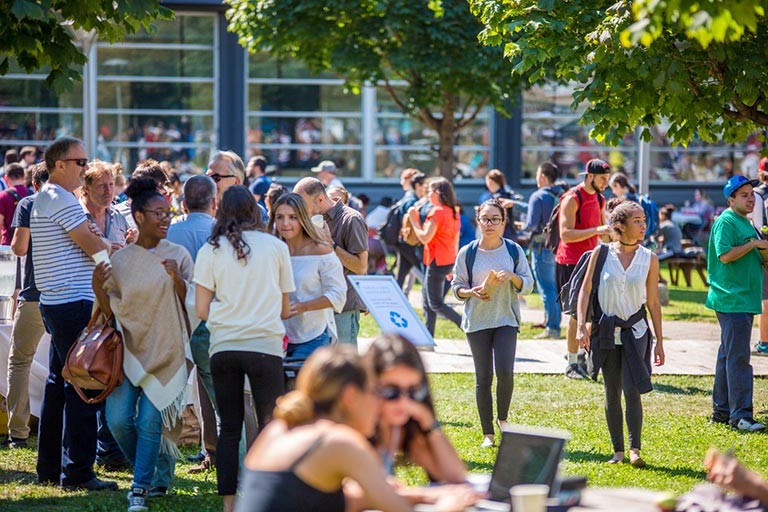Be prepared

Jacques Lachance, Concordia’s director of Security, has reason for believing his department has made a positive change.
“When I arrived here 15 years ago, the university was approximately a third the size it is today,” he says, “with probably half the number of students we have at the present time. But at the time we had 2,100 incidents per year. Now we’re down to 800. We’ve made a lot of improvements.”
Emergency preparedness
But the last year has been about more than improvement—rather, it’s been about looking at security from an entirely new perspective. Up until 2014, Lachance notes, his department was tasked with responding to emergencies, while the process of planning and preparation for the eventuality of emergencies was the provenance of Environmental Health and Safety.
“The response used to be our responsibility,” he says, “but preparedness was not. In many cases we were coordinating response to emergencies, but we had not been involved in the analysis or procedure-preparation.”
As of the summer of 2014, however, the Security Department has taken on emergency measures as well as fire prevention. This meant that the major challenge for Lachance and his team in 2015-16 was growing into the demands of a preparedness footing through risk-analysis and review of the program in place.
“We conducted a very deep audit of all the plans, measures, and structures,” he says. “We went through a year of analysis to meet the national standard for emergency response and emergency preparedness. Then we completely reviewed the different committees and their responsibilities. I think it created not only an evolution, but a revolution in the way we conduct emergency measures.”
It makes sense to always be ready since emergencies are impossible to avoid in a university the size of Concordia, says Lachance. The difference between a safe and an unsafe campus, however, is in how prepared security is to respond to emergencies.
In 2015-16, that preparedness was tested by water leaks, a gas leak, as well as electrical outages.
Frontline operations
The year was also about reorganizing frontline operations, which Lachance defines as patrols and desk services.
“We maintain 13 desks 24 hours a day throughout our 70 buildings,” he says. “So every time there’s a small emergency—an accident, the need for first aid, a fire alarm—we keep our personnel ready to respond within three minutes, with two officers on the scene and another waiting for emergency services at the main door of the building.”
This year, patrols were reorganized through computer-based analysis coupled with supervision in order to determine how to make them more efficient and useful. Meanwhile, the role of the service desks was also reorganized. All of it has been part of a flourishing culture of security, meeting the needs of everyone on campus -- from students to staff.
“These are the visible parts of the services,” he says. “We respond to 5,000 requests for information per day at some of our desks, so people feel safe when they enter. According to online polls and internal polls conducted by Facilities Management, about 83 to 95 per cent of the community feels safe at the university. I think we’ve had great success.”



